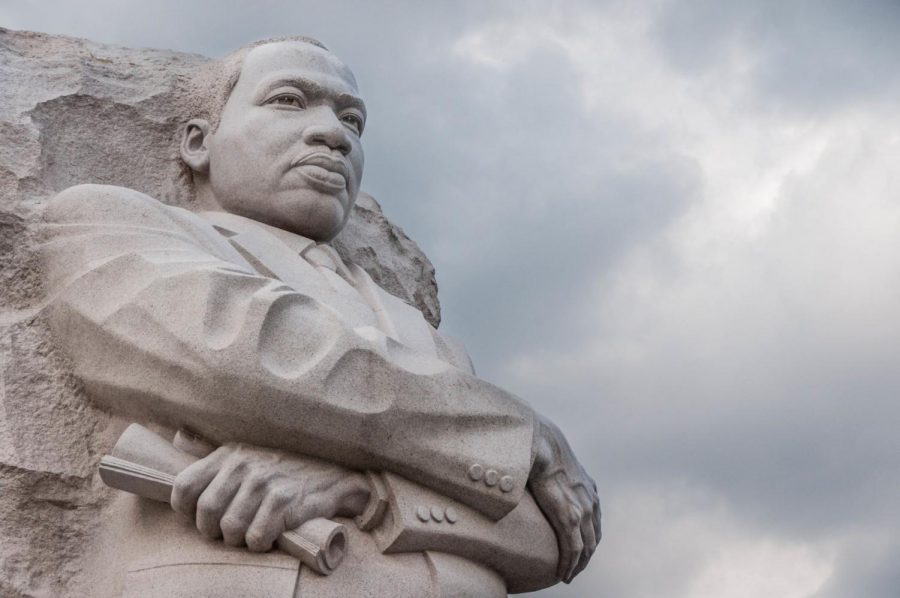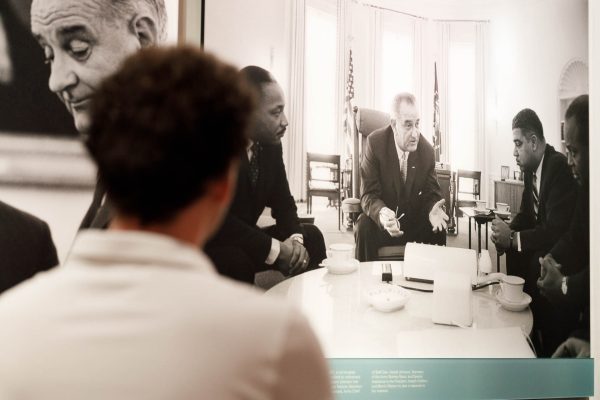FACE OFF: Stop using the plight of marginalized people to make money
The original meaning of Rev. Martin Luther King Jr.’s quote in the ad was to condemn capitalism and materialism.
Everyone loves the Super Bowl ads. As one of the most widely viewed events on television, companies scramble to have advertisements available during this slot and aim to make them memorable by being either funny, sappy or patriotic enough to make you want to buy their product.
This has resulted in some great commercials like Doritos, which consistently produces decently funny ads, as well as some bad ones, like that puppy monkey baby Mountain Dew commercial a while back that has haunted my dreams ever since. This year, the Ram Pickup truck made an appearance alongside several clips of cowboys and hardworking families with audio from Rev. Martin Luther King Jr.’s sermon, “The Drum Major Instinct,” playing over the videos.
While the use of cowboys is tacky and cliche and whatnot, it’s really the use of King’s speech that is concerning for me. For one thing, it seems woefully unaware of King’s anti-capitalist message that rings throughout the sermon, including this statement, which is made later on in the overall speech stating that advertisements make it seem that “[in] order to be a man of distinction, … [in] order to make your neighbors envious, you must drive this type of car.”
If it seems vague out of context, allow me to elaborate: King’s words are meant to condemn the capitalist instinct to rely on material goods to better our view of ourselves within ourselves or within society. The message is that a certain car will not truly improve your lot in life, nor will any material good, in fact, and that the incessant pursuit of it in capitalist culture is toxic and ineffective for growth.
So to take this sermon and use it in an advertisement for a car is wildly, almost hilariously ironic. The irony is worsened in context of the racial tension going on currently in the National Football League, particularly regarding the derision and condemnation of players protesting inequality by kneeling during the National Anthem. Tell me, Ram, are you interested in the plight of marginalized people or are you interested in using their struggles to line your pockets?
The thing is, this is not an isolated incident. Anyone remember Pepsi’s foul up last year with Kendall Jenner, a police officer and a Black Lives Matter-esque protest all in a nice little capitalist bow? It said, “Buy Pepsi! End injustice!” One, Pepsi isn’t good. Two, using social movements to sell a product, much like we’ve seen with Ram, is ultimately unethical.
Social Movements like third wave feminism, Black Lives Matter, the 1960’s civil rights movement, etcetera, emerge as a result of injustice and inequality within our state. It is the voice of people crying out as they are being systematically oppressed. So to then bottle that cry and play it again and again to align your product with concepts of freedom, power and progress distorts the original message and taints it with monetary gain.
Protest is often romanticised in America, given this impressive, conscious air. Companies tend to feed off of this by making themselves appear conveniently socially aware so as to profit off the values of American citizens. But this is, more often than not, empty, shallow and self-interested. Companies are not interested in marginalized issues, so it seems to me they have no right to use it in their commercials.












